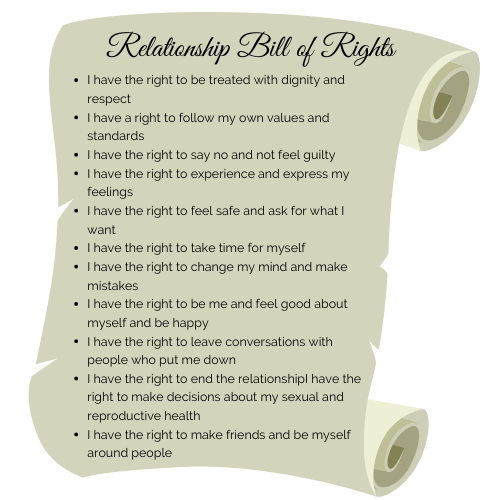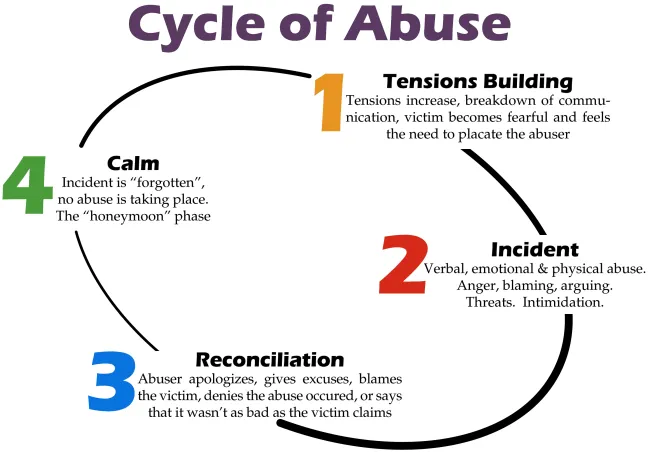Healthy Relationships
What is a healthy relationship?
- Partners in the relationship value each other’s opinions
- Disagreement can happen and neither partner tries to control or change the other’s opinion
- Neither partner(s) makes the other feel guilty or manipulates them when they are told “no”
- Partners accept responsibility for themselves, and mistakes are accepted and learned from
- Boundaries are established and respected
Support
- Partners support each other’s goals
- Successes are celebrated
- Failures are supported and partners assist and help each other during difficult times
Trust and honesty
- Partners trust each other and trust is consistently worked on in the relationship
- Honesty is important and valued in the relationship
- Partners feel comfortable and safe with each other
- Partners are honest with themselves and each other
Communication
- Communication is direct. Manipulation, intimidation, and fear are not used when partners communicate
- Listening is active. Active listening requires that each of you make sure that you really understand what the other person says.
- Decisions are negotiated and made together
- Feelings and needs are free to be expressed
- Conflict is welcomed and dealt with openly with all involved seeking a mutually acceptable outcome
Autonomy
- Each partner is an individual. Neither partner defines the other.
- Each partner is confident in their own worth
- There is room for positive growth and growth is encouraged and supported by partners.
- Independence and alone time is accepted and respected.
Fairness and Equality
- Partners are accountable for their behaviors and do not blame each other for feelings or things that happen
- Forgiveness is essential and present
- There are no winners in conflicts and compromise is equal and fair.
- Partners give and receive equally in the relationship.
Relationship Bill of Rights

Red Flags of a Relationship
Relationships are complicated and unique. It is no wonder it may be difficult to determine if a relationship is unhealthy and/or unsafe. Items that some people may consider healthy, others may consider unhealthy. Below are some warning signs of an unhealthy relationship, this list is not all inclusive:
- Checking cell phones, emails or social networks without permission
- Constant belittling or put-downs
- Explosive temper
- Extreme jealousy or insecurity
- Isolation from family and friends
- Making false accusations
- Physically inflicting pain or hurt in any way
- Possessiveness
- Repeatedly pressuring the partner(s) to have sex
- Telling someone what to do
While these things alone may not make for an abusive relationship, these unhealthy behaviors can be red flags for future violence. When these behaviors are used to have control and power over the partner(s), that is when it is a toxic, abusive relationship. The transition from one or two unhealthy traits or behaviors to abuse may look like the cycle of abuse below.

The Cycle of Abuse was created in 1979 by Lenore E. Walker